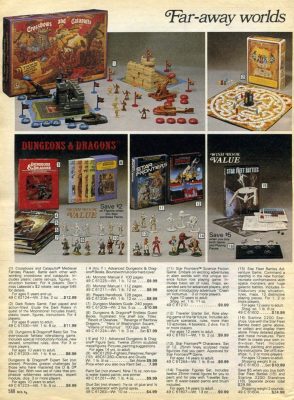By Scott Mohnkern
Today we feature the first of a two part article from guest writer Scott Mohnkern. Scott has been playing RPGs since the days of Advanced Dungeons & Dragons and Traveller. A network security professional and avid board gamer, he hosts weekly board gaming sessions and bi weekly ttrpg sessions in suburban Maryland. Connect with him on Facebook, BlueSky, or Discord.
6. Run Short Campaigns With Clear Endpoints
After a few successful one-shots, your players might be ready for a campaign. To ease their commitment anxiety, propose a short campaign with a set number of sessions—say, six sessions over a year. Knowing there’s a defined endpoint makes the idea of trying something new less intimidating.
For example, I am running a six-session Numenera campaign focused on unraveling a disaster in a city. The limited scope allowed us to explore the world without players feeling trapped in an endless story arc.
7. Design Flexible Campaigns
Life happens, and players can’t always make every session. Design your campaigns to accommodate absences without derailing the story. For instance, in a city watch campaign, a missing player might be on gate duty. In a horror game, they might have been separated from the group.
Flexible storytelling ensures everyone feels welcome and reduces pressure to attend every session. Players are more likely to commit when they know the group can adapt to their schedule.
8. Keep Running One-Shots
Even as you build campaigns, continue running one-shots to explore new systems and genres. Regularly introducing new games keeps your group open-minded and curious. Over time, they’ll think less about mechanics and more about the stories they want to tell.
For example, I alternate between campaign sessions and one-shots in different systems. This variety helped players become comfortable with trying new games, whether it was a superhero adventure in Mutants or a sci-fi mystery in Coriolis.
9. Host Character Creation Events
Character creation sessions can be a fun way to introduce a new system. Gather your players for a short session dedicated to building characters, explaining mechanics, and discussing the premise. These events also encourage collaboration, as players create characters with intertwined backstories.
10. Explain Why the System Fits the Genre
Different systems are designed to evoke different experiences. Help your players understand why the mechanics you’ve chosen suit the story you want to tell. For instance, the modified Year Zero Engine used in Blade Runner emphasizes failure and moral ambiguity, perfectly matching the genre’s dark tone.
When introducing a new system, explain how it enhances the narrative. Players will appreciate your thoughtfulness and be more willing to embrace the mechanics.
Final Thoughts: Embrace the Possibilities
Breaking out of the 5e mold doesn’t have to be a challenge. By focusing on genres, streamlining mechanics, and building trust with your players, you can open the door to countless new adventures. Whether you’re exploring dark horror, gritty cyberpunk, or sci fantasy, the key is to make the leap fun and accessible.
So, dust off those lesser-known rulebooks, pitch an exciting narrative, and gather your friends around the table. Your next great adventure is waiting—no dragons required.
What do you think? Let us know in the comments!





